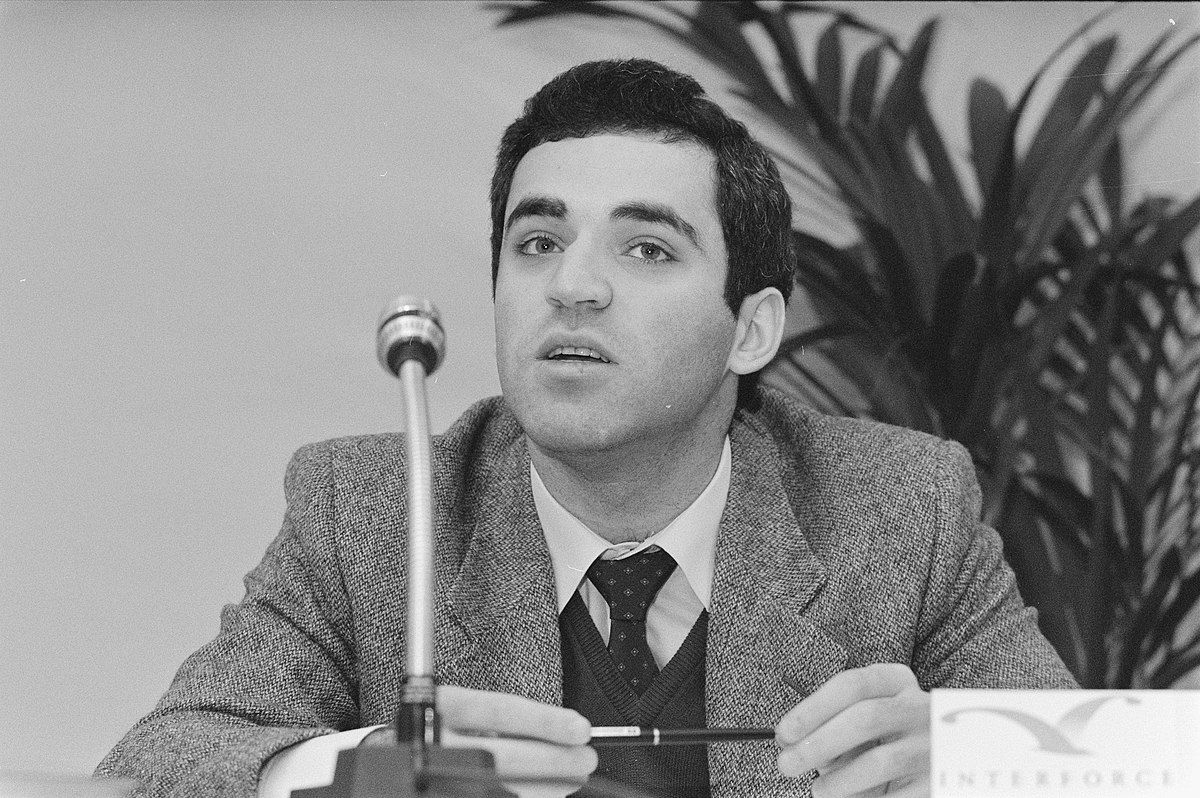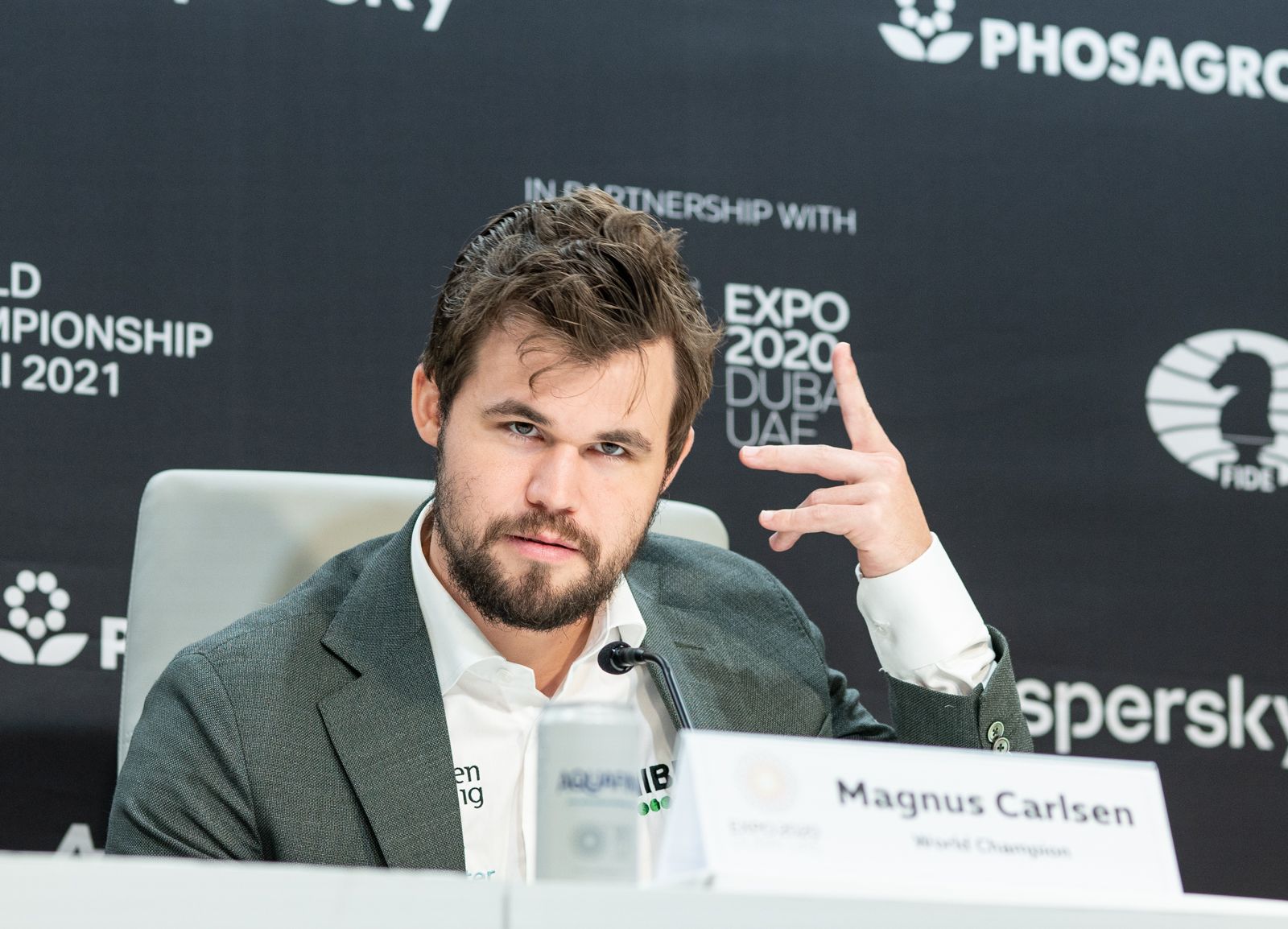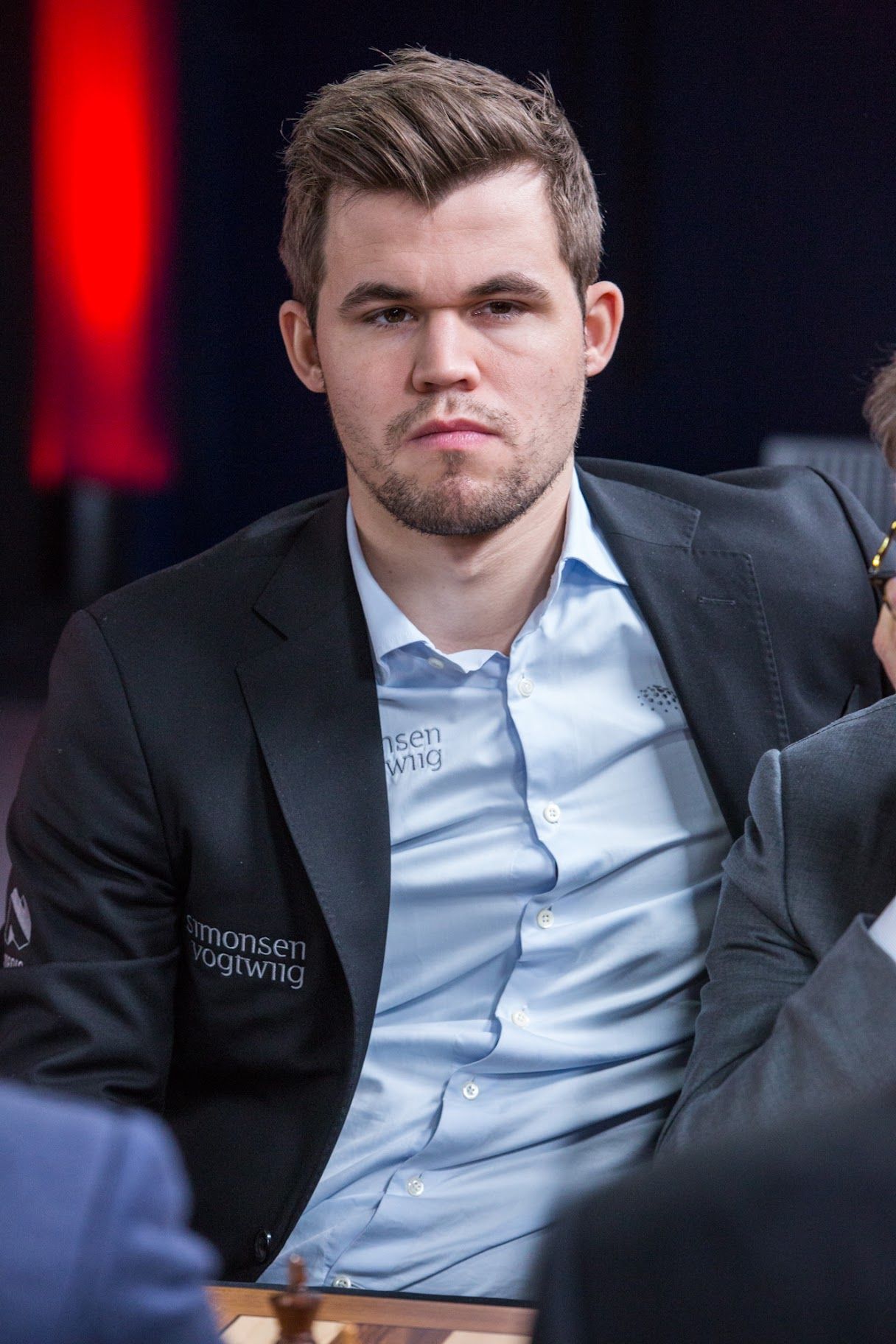
World Champions Who Gave Up The Crown
GM Magnus Carlsen made waves with his recent decision not to play in the 2023 World Championship. However, he is hardly the first world champion to quit or criticize the championship system, or otherwise tire of the role or leave its acquisition to two new players. Some cases, like that of GM Bobby Fischer, are relatively famous. Others are less so.
But who are these others who came before? And are their situations really anything like Carlsen's? That's the main question we'll try to answer, as it will place his momentous decision into historical context.
Garry Kasparov (1993) | Anatoly Karpov (1999) | Emanuel Lasker (1921) | Alexander Alekhine (1946) | Mikhail Botvinnik (1966) | Bobby Fischer (1975) | Magnus Carlsen (2023) | Conclusion
Garry Kasparov (1993)
While he was still world champion, GM Garry Kasparov—and GM Nigel Short, his next challenger after winning the regular FIDE Candidates cycle—split from FIDE in 1993. Nearly 30 years later, Carlsen is now, like Kasparov, conceding FIDE's world championship.
The similarities almost end there. Kasparov valued being world champion more than Carlsen, he just didn't think he needed FIDE's approval in 1993. Kasparov's decision was counterproductive in hindsight, and he came to regret it. It led to a decade of confusion with two competing claimants to the throne.

And unlike Kasparov, Carlsen has no intent to claim his own title, even though he probably could if he wanted. If Meltwater is any indication, sponsors would not be a problem, but he would probably have to find an organizing committee. Instead, however, Carlsen is content to remain the #1 on the rating list for as long as he can.
Kasparov was not content with that, and he was still #1 by rating when he retired in 2005, a long 12 years after his decision to leave FIDE. That retirement came just weeks after Kasparov, who finally lost his title to GM Vladimir Kramnik in 2000, gave up on trying to regain an undisputed title on his own terms.
While Magnus won't be creating a rival claim to the throne, in some ways he's being even more subversive. Actively retaining a 50+ point rating advantage on everyone else—possibly 100 points if he comes anywhere close to his 2900 rating goal—while not bothering to have it solidified in the title is probably just about the most a single player could do to turn World Champion into an empty formal designation.

We will see if Carlsen's decision plays out any better or worse for chess as an institution than Kasparov's did. For now, we do know that Kasparov and Carlsen share a contempt for FIDE recognition of their status as the world's best player.
Anatoly Karpov (1999)
The most recent occasion on the list is also one of the more obscure because it ushered in the era of lesser known FIDE champions. Karpov, undisputed world champ from 1975-85, was by zero means "lesser," but he was the first player to get the FIDE world champion title back after Kasparov left the organization in 1993.

FIDE almost immediately started messing with the world championship format. In 1996, Karpov was seeded into the semifinal of a 13-player match tournament and defeated GMs Boris Gelfand and Gata Kamsky to keep his title. Karpov's 1998 defense was even less traditional. There was a year less to wait and the Candidates process involved a 97-player super knockout tournament, although Karpov was in the final this time.
GM Viswanathan Anand won the knockout and then had to start playing Karpov less than a week later in a six-game match. Karpov won in rapid tiebreaks. One of his easier championship paths, however, was going to have to be succeeded by his most difficult yet.

The very next year, that super knockout tournament was to be the world championship itself, and Karpov was only to get a first-round bye like several other top players of the time. Karpov didn't agree to being the first champion to have to defend his title this way, so he simply didn't play. GM Alexander Khalifman ultimately became FIDE's new world champion instead, and was followed later by Anand, GM Ruslan Ponomariov, and GM Rustam Kasimdzhanov before FIDE ended the super knockout championship format. (It survives today as the World Cup.)
Unlike Carlsen, or anyone else on the list, Karpov was not even getting the opportunity for a match. And so while he definitely declined to participate in a world championship, his circumstances were also unique.
Emanuel Lasker (1921)
Emanuel Lasker was the first world champion to express disdain for the title and show, in a public way, that not everyone enjoys occupying the position.

In theory, it was difficult for the early champions to get too bored of the title. If they didn't feel like playing, they could simply wait until they did, an approach Lasker himself took. He played no title matches from 1896-1907, and again from 1910 to the outbreak of World War I, during which there were more important things going on in Europe than chess.
But placing the responsibility for negotiating the next match on the champion himself posed its own problems. Negotiations for the first world championship after the war, between Lasker and Jose Capablanca, grew as strained and bitter as store-brand plain Greek yogurt.
It reached the point where Lasker announced he was resigning his title and giving it to Capablanca. He would still play the match, just as the challenger. Nevertheless, he did, like Carlsen, want to give up the title.

You can read about the Lasker-Capablanca match in our 100th anniversary piece last year. The short version is few if any people in chess media accepted Lasker's resignation—or at least the idea that he could just give the title to Capablanca. Once the match began, Lasker didn't seem terribly worried, at least according to GM Ossip Bernstein's recollection, about winning. And so the validity of his claims ended up moot once Capablanca became champion.
Even so, Lasker became the first player to at least try to resign the world champion title. As we know, he wasn't the last.
Alexander Alekhine (1946)
Alexander Alekhine didn't exactly give up the title; he died while holding it. That makes it pretty hard to compare his situation to anyone else's, let alone Carlsen's.
But the parallel is clear in one way: Even though it was natural causes (or, some ask: were they natural?) that did him in, Alekhine lost his title without playing a match. Excluding the 1993-2006 FIDE champions, the only players to do that are Alekhine, Fischer, and Carlsen.

Just as World War I wiped out a match between Lasker and Akiba Rubinstein, World War II prevented Alekhine and Paul Keres from playing for the title. This time Capablanca's role as the postwar challenger was filled by Mikhail Botvinnik. But, while trying to arrange a match with him, Alekhine was gone, less than a year after the war ended.
Mikhail Botvinnik (1966)
Botvinnik doesn't quite belong on this list, in that he did lose his title in a traditional match. Why is he listed then? Because he, like Carlsen, was unhappy with the world championship process and thus simply stopped participating.
Botvinnik actually lost three world championships matches. The first two times, in 1957 and 1960, the champion was guaranteed a rematch if he lost. In both 1958 and 1961, Botvinnik used that provision to successfully regain his title.

After 1963, however, that clause went away. In protest, Botvinnik refused the ex-champion spot in the next Candidates, instead of trying to get back to the World Championship in 1966 like he was some kind of plebe.
Most cases in this review can be summarized as "someone else can have the title." Botvinnik was a case of "someone else can keep the title." It definitely produces similar vibes., even if it makes Botvinnik not a perfect fit for this list.
Bobby Fischer (1975)
The most famous case before Carlsen, even if Fischer's bizarre personality differentiates himself negatively from Carlsen's even keel. At the board, that is best seen in the fact that the 1972 World Championship featured Fischer's last competitive chess games for 20 years, whereas Carlsen has continued and will continue to play competitively.

Surprisingly, that's pretty much the only other thing that differentiates these two cases. Otherwise, neither liked the specifics of the match format presented to them, and neither got them changed to something they would play, so neither played. In fact, it's unclear if anything could have ultimately convinced either Fischer or Carlsen to play once their would-be opponent was determined (except maybe, in Carlsen's case, were he to play GM Alireza Firouzja).
In Fischer's case, he barely played for the title in the first place in 1972. It thus seems doubtful to many that he ever planned to play against someone he had never faced before—Karpov—in 1975. In the end, FIDE accepted all but one of Fischer's conditions. It wasn't enough and he quit.

One other difference has not to do with the champions, but with who will replace them. Because of the different Candidates cycles, Karpov had already beaten the runner-up, GM Viktor Korchnoi, in a 24-game match and thus earned the title once Fischer forfeited. This time, the Candidates was a round-robin and so there will be a match to replace Carlsen with GM Ian Nepomniachtchi or GM Ding Liren.
As stated, no one questions that Carlsen is a much better-adjusted individual than Fischer was. Nevertheless, Fischer's decision is still the closest historical comparison to Carlsen's.
Magnus Carlsen (2023)
There's not much to say about Carlsen in this article that hasn't been covered elsewhere, except to compare his situation to those of his predecessors.
And, in fact, Carlsen's situation is unique after all. He is the only player in this article to meet all three of these simple criteria:
- Had title defense match on the table (this excludes Alekhine, Botvinnik and, on the match count, Karpov)
- Refused to play the match (this excludes Lasker and Kasparov)
- Continued to play tournaments (finally excluding Fischer)

One last point on Carlsen. One career goal he has still yet to achieve is winning the Chess World Cup. He's twice played it while world champion, in 2017 and 2021, and there's no reason to think he won't play it again. The World Cup is, of course, a qualifying event for the Candidates Tournament. If Carlsen wins the 2023 World Cup, once again the world may have to wait and see: Will Magnus play or stay home?
Conclusion
So there you have it. Carlsen did face some circumstances and make some decisions that are, historically, quite unusual.
However, Carlsen is not unique in giving up the crown or in getting tired of it. Even players we did not discuss, like Spassky in 1972 and Anand recently, have gone on record as being less than thrilled with everything that holding the title entails. This even though neither actually vacated, and both played in multiple additional Candidates cycles after losing the crown. But that last part only suggests that gaining the title is more fulfilling than keeping it.
To that point, yes, a shortened cycle that doesn't guarantee a match for the reigning champion produces winners like Khalifman or Kasimdzhanov, great players but not historically great. But the fans could still differentiate a one-time champion from a six- or eight- or ten-timer, and if it makes the whole process less taxing on the titleholder, maybe that is the price chess has to pay to keep its very brightest stars from burning out.
Which world champion do you think had views on the world championship most similar to Carlsen? Are there any episodes we missed? Will he ever try to become world champion again? Let us know your answers to these questions and more in the comments!




